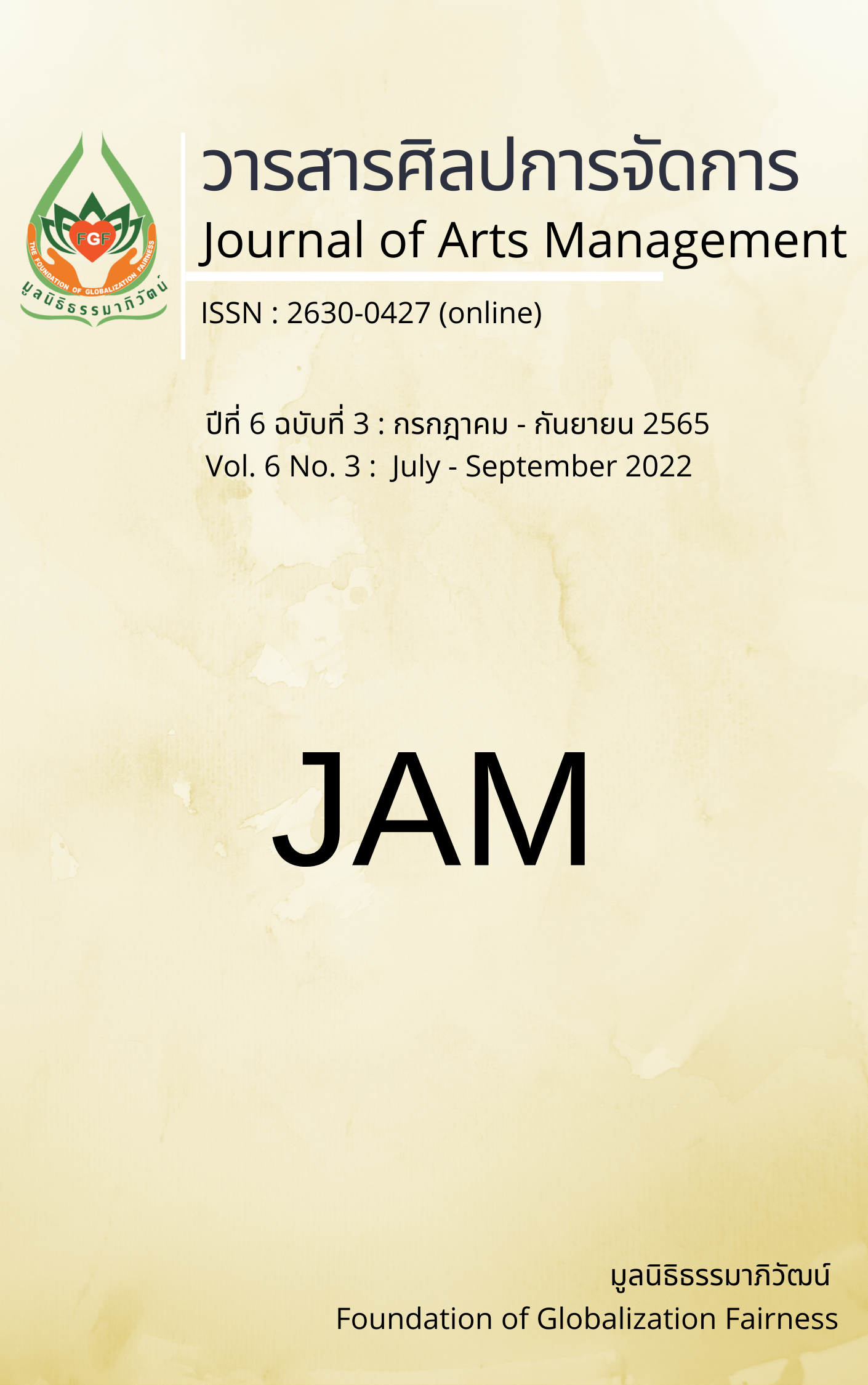A Development of Moderate Class More Knowledge Model to the Quality
Main Article Content
Abstract
This article aimed to 1) study "moderate class, more knowledge"; 2) develop a learning management model "moderate class, more knowledge"; and 3) propose a learning management model "moderate class, more knowledge" to develop quality the learner. This research was mixed methods. Data collection were document analysis, content analysis, questionnaire, interview, focus group, descriptive statistics percentage, frequency, average, standard deviation, and content analysis and conclude questionnaire by focus group.
The research was found as follows: 1) learning management "moderate class, more knowledge" was at a high level; 2) the learning management model consists of the activities of "moderate class, more knowledge." The 4 Hs were brain development (head), mental development (heart), skill development (hand) and physical development (health). The learning activities increase critical thinking, life skills, problem-solving skills, and teamwork. The activities support child-centered learning, active learning, constructing knowledge by self and learning with happiness; and 3) The model based on the learning management model "moderate class, more knowledge" consists of 3 main components: enhancing and supporting learning activities and quality control. The professors' focus group guidelines for assessing the model were suitability, possibility, and usefulness. The result implies the development of the learner.
Article Details

This work is licensed under a Creative Commons Attribution-NonCommercial-NoDerivatives 4.0 International License.
Views and opinions appearing in articles in the Journal of Arts of Management It is the responsibility of the author of the article. and does not constitute the view and responsibility of the editorial team I agree that the article is copyright of the Arts and Management Journal.
References
Gultaimsin, T., & Panich, A. (2018). Factors affecting the successful implementation of moderate class more knowledge policy in schools under Petchaburi Primary Educational Area Office 2. Veridian E-Journal, Silpakorn University, 11(3), 1557–1574.
Kaewdaeng, R. (1999). Quality assurance: Everyone can do it easily. Wattanapanich.
Kaewthongyai, Y. (2019). management model of moderate class, more learning policy in schools under office of primary educational service area. Journal of MCU Nakhondhat, 6(2), 943–959.
Kingsai, K., Srihaset, K., & Tirakanant, S. (2021). A study of digital survival skills of Matthayom Sueksa six students. Journal of Multidisciplinary in Humanities and Social Sciences, 4(2), 678–693.
Hague, C., & Payton, S. (2010). Digital literacy across the curriculum. Future lab.
Inngam, S., & Chanawongse, A. (2019). Development of a system for effective early childhood education in schools under Office of the Basic Education Commission. Journal of Education, 30(3), 160-173.
Ministry of Education. (2008). The basic education core curriculum B.E. 2551 (A.D. 2008). The Agricultural Cooperative Federation of Thailand.
Nakhon Si Thammarat Primary Educational Service Area Office 4. (2020). Educational quality development plan for fiscal year 2020-2022. Nakhon Si Thammarat Primary Educational Service Area Office 4.
Nuangchalerm, P. (2017). Moderate class, more knowledge: policy to theory and practice. Prae-wa Kalasin Journal of Kalasin University, 3(1), 137-146.
Office of the Basic Education Commission. (2015). The administration of moderate class more knowledge. The Agricultural Cooperative Federation of Thailand.
Phumphongkhochasorn, P., Damnoen, P. S., Suwannaprateep, T., & Phoomparmarn, U. (2021). National Educational Standards and the Improvement of Thai Education System with World Class. Asia Pacific Journal of Religions and Cultures, 5(1), 75–86.
Pumma, T., & Sichomphoo, C. (2021) Guidelines for project management moderate class more knowledge active learning model of school administrators in school group 6 Naresuan under the Phitsanulok primary educational service area office 1. Journal of Roi Kaensarn Academi, 6(10), 50-64.
Wongcharoen, B., & Tiacharoen, S. (2019). The administration of “Moderate Class More Knowledge” in Bansuanluang (Rattanawichittayakan) School. Journal of Educational Administration, Silpakorn University, 9(1), 101-114.


